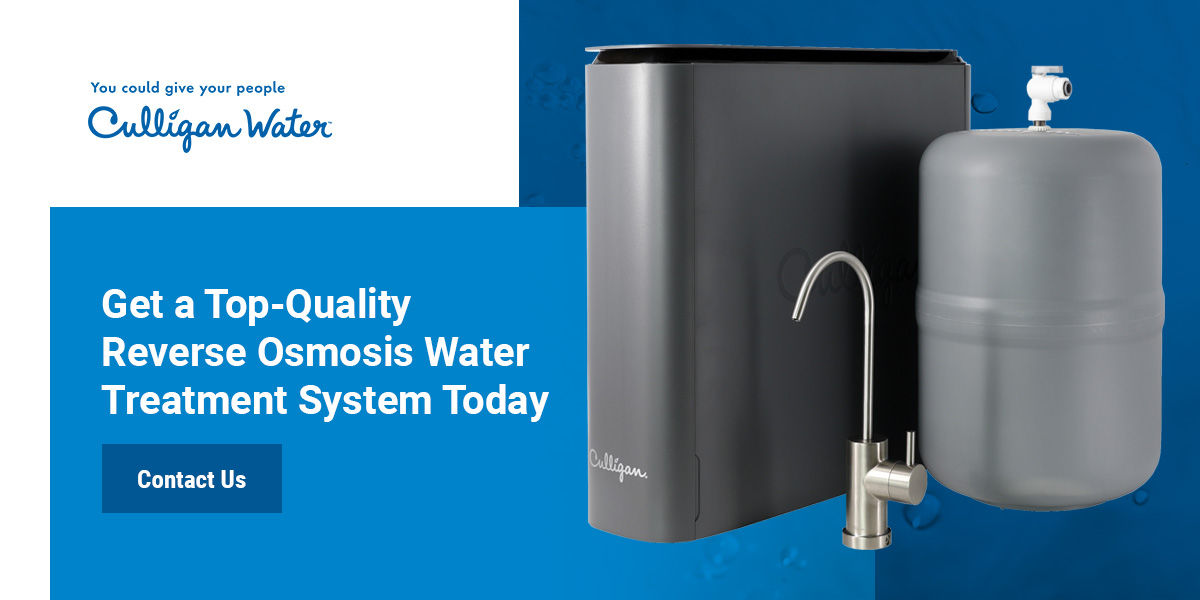Table of Contents
Are you in the market for a water purification system for your home or office to ensure your family or employees can access cleaner water? In the process, you may have realized there are two primary purification systems to choose from, and you must decide which is the best fit. Comparing reverse osmosis (RO) water vs. distilled drinking water will provide the answers you need to choose the best water treatment system for your needs.
Is Distilled Water RO Water?
The end product from a water purification process known as distillation is distilled water, which is vastly different from reverse osmosis water. Distillation involves still apparatus that boils water, captures its vapor and cools it, returning it to water. This process removes water-hardening minerals, salts and other dissolved solids from the water, rendering it purer and safer for drinking.
What Is Reverse Osmosis Water?
Reverse osmosis is a filtration process that involves forcing impure water through a semipermeable membrane with microscopic pores to separate dissolved particles and other unwanted minerals from the water. The semipermeable membrane catches minerals, microbes and salt, preventing them from passing through, which produces purified reverse osmosis water.
Exploring Distilled Water vs. Reverse Osmosis Water
Understanding the core differences between distilled vs. reverse osmosis water is essential when determining which water treatment system to install at your office or home. The following breakdown offers an in-depth comparison to help you understand the differences and decide on the best solution:
- Processes: While RO water results from filtration, distilled water relies on boiling and cooling to purify the water. Filters are often added to a distillation system to purify the water further.
- Efficiency: The distillation process is time-consuming, producing little distilled water at a time. Meanwhile, reverse osmosis systems can offer purified water on demand, making them more suitable for home and office use.
- Cost: Distillation demands specialized equipment and significant energy to facilitate the process, making it costly. On the other hand, reverse osmosis systems are easy to install and highly cost-effective when in place.
- Taste: Distilled water typically contains fewer minerals than reverse osmosis water, but the minerals add to its flavor. Many consider distilled water to be bland compared to RO water.
- Efficacy: Although distillation effectively removes most water-hardening minerals and salts, the process is ineffective in eliminating several chemicals. The reverse osmosis filtration process removes several contaminants, including some of the chemicals that remain after distillation.
Get a Top-Quality Reverse Osmosis Water Treatment System Today
Invest in your well-being with quality reverse osmosis systems from Culligan Water, your trusted Central Pennsylvania water conditioning solutions expert. Contact our team today to schedule your free water analysis and discuss your water treatment needs.

